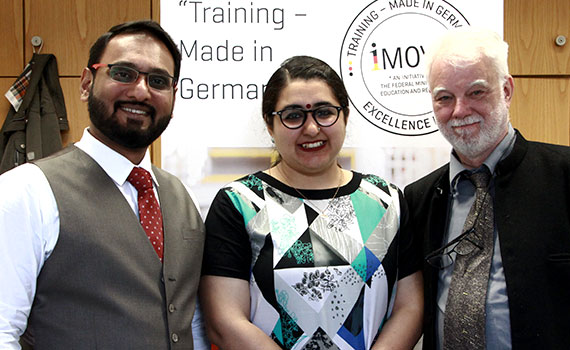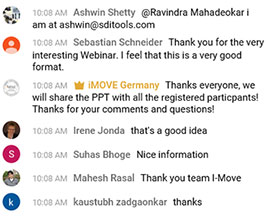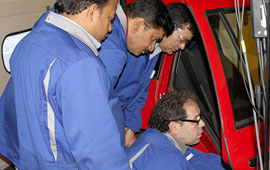iMOVE hosted the first "Case Webinar - How do German SME clusters approach apprenticeships?" in Bonn on 11 April 2018. This webinar highlighted aspects of the implementation of these programmes and how German small and medium sized enterprises (SMEs) are using this approach to prepare for the skills demands of the future.
Photo from left to right: Arunachalam Karthikeyan, Pooja Gianchandani, Juergen Maennicke
Case Webinar: How do German SME clusters implement apprenticeships?

The webinar is part of the iMOVE initiative to connect with partners in India and other countries.
Over 150 professionals from 29 countries registered for the session. Among the participants were CEOs, training managers of companies, principals of vocational schools, members of industrial clusters, representatives of the Indian government (federal and state) and other stakeholders with active interests in the German dual training system. The initiative received support from several local and regional cluster organisations and chambers in India.
The 60 minute webinar was designed to be interactive and offered the participants the opportunity to ask questions to the panelists – Juergen Maennicke, senior consultant iMOVE, and Arunachalam Karthikeyan, head of the iMOVE office in India.
The session was moderated by Pooja Gianchandani, German chancellor fellow, who connected the threads reiterating how countries can work with the best practices of dual training to develop their own unique vocational education and training (VET) systems.
Maennicke emphasized the need to empower the regional chambers so that they can deliver VET programmes. Taking the participants through the case study he talked about the challenges of German SMEs and how they addressed the skills gaps. He also elaborated on the need for benchmarking and quality assurance of inter-company training centers that help SMEs participate in the German dual VET system.
Karthikeyan shared the cluster model in India and the challenges faced by the Indian companies. He also talked about the main principles of the German dual system that can be taken into consideration by Indian companies and policy makers in line with the existing National Skills Policy of India. He also elaborated at length on the cluster approach and other relevant approaches.
The participants asked a number of questions ranging from methods of VET and quality improvements to recruiting apprentices and offers for drop-outs.

Screenshot of the top chat
